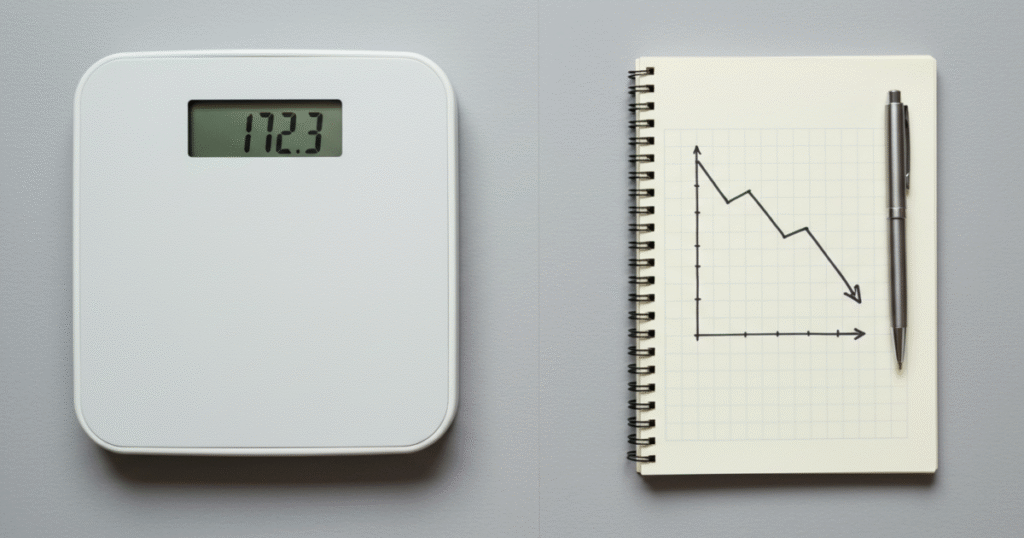It’s one of the most common questions in health and fitness: “Should I weigh myself every day or once a week?” The debate is endless, with strong opinions on both sides. But the question itself is flawed. It focuses on the frequency of an action rather than the quality of the data it produces. At Pillar, we view your body as a laboratory, not a battlefield. The scale isn’t a judge of your worth; it’s a tool for collecting data. This article will teach you how often should you weigh yourself and, more importantly, how to use that information like a scientist to get the best results.
The Case for Daily Weigh-Ins: More Data, Faster Feedback
Stepping on the scale every day provides you with the maximum amount of data. This high-frequency feedback loop can be a powerful tool for accountability and learning. When you weigh in daily, you can more quickly see how specific actions—like a high-sodium meal or an intense workout—affect the number on the scale.
Research supports this approach, finding that participants who weighed themselves daily lost significantly more weight (1) than those who weighed themselves less often. The act of daily self-monitoring appears to encourage the adoption of other positive weight-control behaviors.
However, for some, this daily check-in can lead to anxiety and an unhealthy obsession with normal, insignificant fluctuations.
The Case for Weekly Weigh-Ins: Seeing the Bigger Picture
A weekly weigh-in is often promoted as a less stressful way to track progress. Because your weight can fluctuate by several pounds from one day to the next due to factors like hydration, carb intake, and hormonal shifts, a once-a-week measurement can help you avoid reacting to this “noise” and focus on the underlying trend.
This method can be effective and is certainly better than infrequent or no tracking at all. It provides a consistent check-in that can keep you mindful of your goals without the potential psychological burden of daily weigh-ins. The primary drawback is the slower feedback loop; it takes longer to realize if your current plan isn’t working, and a single “off” day (like weighing in after a big weekend) can skew your perception of an entire week’s progress.
The Pillar Approach: How to Weigh Yourself Like a Scientist
The optimal strategy isn’t about choosing daily or weekly; it’s about using a scientific method to collect and analyze your data. This is the core of the Audit pillar—our formal process for analyzing your results to make intelligent, non-emotional adjustments.
This method gives you the best of both worlds: the rich data of daily weigh-ins and the clear, stress-free trend analysis of weekly tracking.
Step 1: Collect Consistent Data Weigh yourself every morning. For your data to be reliable, you must control the variables.
- Do it at the same time each day (e.g., immediately after waking).
- Do it after you’ve used the restroom.
- Do it before you eat or drink anything.
- Do it with no clothes on.
Step 2: Calculate Your Weekly Average This is the most important step. The daily number is just a single data point, and it is mostly noise. Its only job is to contribute to the average. At the end of a 7-day period, add up all seven daily weights and divide by seven. This number is your true weight for the week, as it smooths out the meaningless daily fluctuations.
Step 3: Analyze the Trend Your weekly average is the real signal. Compare this week’s average to last week’s average.
- Is the number trending down? Your experiment is working. Your hypothesis (your current Stimulus and Nourish plan) is effective. Stay the course.
- Is the number flat or trending up? Your experiment has produced a result that indicates your current plan is no longer effective. It’s time to make a single, strategic change.
This data-driven approach removes the emotion from the number. A single high weigh-in on a Tuesday becomes irrelevant. All that matters is the trend of the weekly average.
When to Put the Scale Away
The scale is a tool, but it’s not the only one, and it’s not right for everyone. For individuals with a history of or predisposition to disordered eating, frequent self-weighing can be harmful. A meta-analysis noted that while self-weighing is not associated with adverse psychological outcomes for most (2), it can be a risk for certain vulnerable individuals.
If you find that the number on the scale negatively impacts your mood or self-esteem, it’s best to stop. Your body is still a laboratory, but you can gather data in other ways:
- Take progress photos and measurements once a month.
- Track how your clothes fit.
- Monitor your performance in the gym (are you getting stronger?).
- Assess your energy levels and mood.
These are all valid and valuable data points for your experiment.
Conclusion
The question of how often should you weigh yourself is best answered with a system, not a simple frequency. By weighing in daily under controlled conditions and using that data to calculate a weekly average, you transform the scale from a source of anxiety into a powerful, objective tool. This method, rooted in our Audit pillar, allows you to analyze the trend, make intelligent adjustments, and continue your experiment without guilt. There are no failures, only data.
Sources
- Steinberg, D. M., et al. (2015). Weighing Every Day Matters: Daily Weighing Improves Weight Loss and Adoption of Weight Control Behaviors. Journal of the Academy of Nutrition and Dietetics, 115(4), 511-518.
- Benn, Yael et al. (2016). What is the psychological impact of self-weighing? A meta-analysis. Health Psychology Review, 10(2), 187-203.
